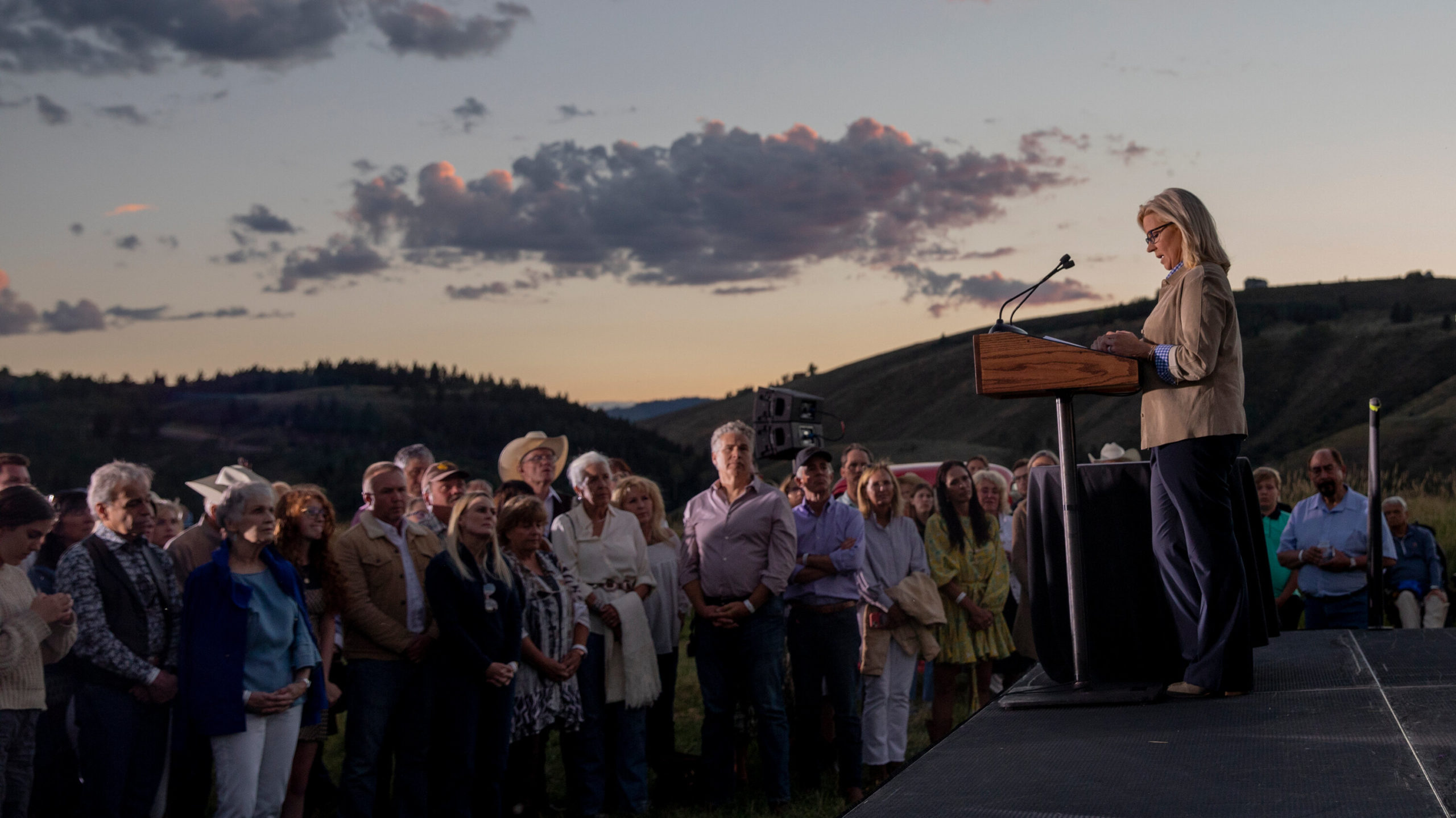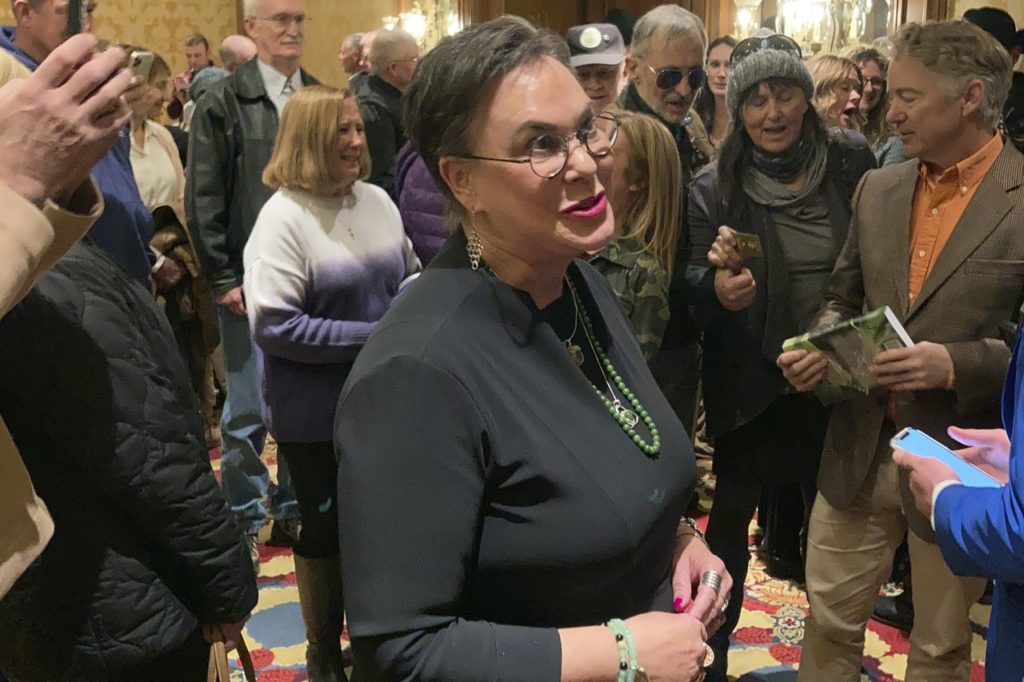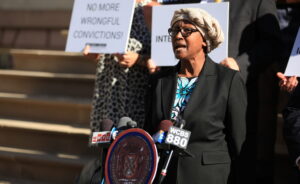
Liz-Cheney-is-Defeated-in-Wyoming
Midway through HBO’s war-on-drugs drama, The Wire, the Baltimore Police Department’s homicide division hosts a wake at a local Irish pub for a detective who died of a heart attack while on his StairMaster. At this vigil—Jameson and Guinness draining recklessly from every tap, bottle, and spout in the bar—the division’s Sergeant begins eulogizing the corpse outstretched on the pool table.
The eulogy reflects on the truth that this man, while alive, wasn’t exceptional. But his title, Detective, regardless of performance, meant something within the streets, city, and country he served. As a backdrop to his speech, the Pogues’ Irish punk/folk ballad “Body of an American” reaches a boiling point. The Sergeant concludes, saying, “Was he as full of shit as every other sad sack motherfucker wearing the badge of Baltimore City Police? Abso-fuckin-lutely. Was his shit as weak as ours? No question. But Ray Cole stood with us. All of us. In Baltimore. Working. Sharing a dark corner of the American experiment. He was called. He served.”
Liz Cheney Falls in Wyoming Primary
On Tuesday, August 16th, Liz Cheney’s congressional career was put to rest. She lost, by 37 points, to Harriet Hageman, Trump’s hand-plucked pawn to wage the primary battle in Wyoming.
Tracing the threads of history—from Shadrach to Sir Thomas More to Emile Zola to Barbara Lee to Alexander Vindman to Cassidy Hutchison—Cheney has etched her name into its fabric as one who refused to bend to the forces of pedagogical falsehood, forsaking all its immediate advantages and welcoming its immediate and long-term consequences. By doing so, she exemplified just how deep her commitment to the American republic runs.
It started with her impeachment vote, followed by participation in the Jan. 6th committee, and finally, refusing to bow or even turn her back on the lies engulfing her party. In short, Cheney, regardless of her job performance or voting record, is the latest example of devotion to the highest ideals of the United States of America. She looked past the partisan boundary, never losing sight that all representatives and citizens are bound by common duty to the constitution.
For Cheney, the gate of convenience was broad and inviting, with most of her party’s representatives sprinting through it. Her 73-point victory in the 2018 primary shows just how easy it would have been to play along in the game of Simon-Says; all Simon asked was to leave your spine and criticisms at the door. But instead, Cheney chose the narrow gate, the one leading to exile.
As she remarked in her concession speech, “This is not a game. Everyone must be committed to the eternal defense of this miraculous experiment called America. And at the heart of our democratic process are elections. They are the foundational principle of our constitution.”

The Definition of Citizenship
The mentality that to be born American means to be dropped onto a socio-political board game, where the only wrongdoing is to be caught, is a central idea explored in The Wire. From the drug trade to police headquarters to city hall—the show takes great pains to display just how catastrophic the turnout is when the only recognized good is the ladder’s next rung.
There’s a reason why The Wire is President Obama’s favorite TV show, as it reflects grimly, and thoughtfully, on the meaning of American citizenship. And it explores what’s lost when such serious reflection diminishes. In large part, it expertly contrasts the story President Obama told on the Edmund Pettus Bridge in Selma, Alabama:
“That’s what America is. Not stock photos or airbrushed history or feeble attempts to define some of us as more American than others. We respect the past, but we don’t pine for it. We don’t fear the future; we grab for it. America is not some fragile thing; we are large, in the words of Whitman, containing multitudes. We are boisterous and diverse and full of energy, perpetually young in spirit. That’s why someone like John Lewis at the ripe age of 25 could lead a mighty march.”
Liz Cheney wasn’t a uniquely remarkable American representative. She’s no John Lewis. But in the face of great personal casualty, she didn’t lose sight of what her country is, the multitudes it contains, how to uphold its principles, and what it takes to shed a ribbon of light during a miraculously dark moment in the American experiment.
Thumbnail Credits: Kim Raff for The New York Times





